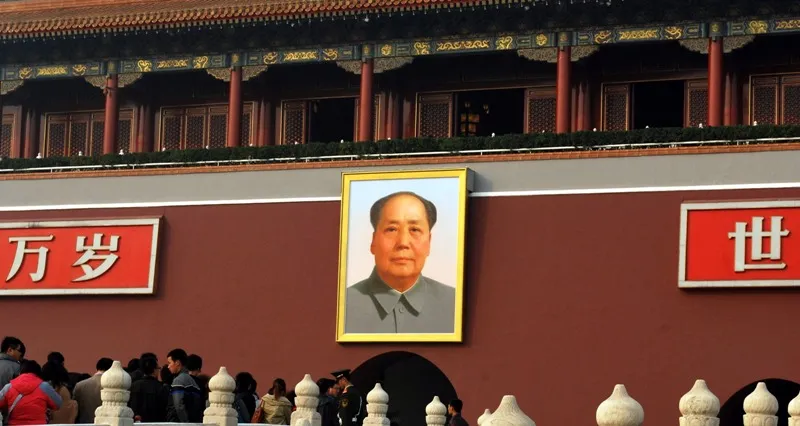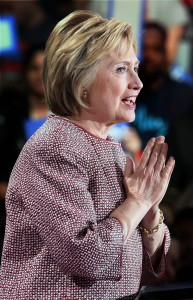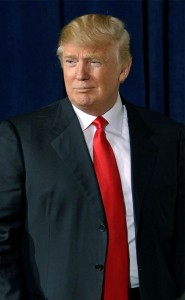-
CENTRES
Progammes & Centres
Location

A Donald Trump-Hillary Clinton title clash, the most likely scenario in the US Presidential elections scheduled for later this year, is causing considerable unease in Beijing, for if there is one area where their views converge, it is on China, albeit on issues which in the manifest may seem somewhat removed from each other. Seen in that vein, the difference in electoral rhetoric with Clinton’s dogged persistence on China’s human rights practices, and Trump’s on China's trade practices, are at best superficial, as they both emanate from the same concern — the increasing dissonance between American and Chinese world-views. Among all the candidates who were or remain in the fray, these two have been the most strident critics of China, and, it need not take much genius to reckon that if the Chinese establishment ever had a candidate preference for the title, it would feature neither.
Democracy and Freedoms have dominated Clinton’s narrative on China from her days as the First Lady, much to the consternation of the Chinese, who have not found an effective antidote to her stridency on the issue. In her address to the full house at the UN 4th World Conference on Women in 1995, in Beijing, she famously declared "women’s rights as human rights" and vice versa, with freedoms of speech and expression as fundamental to this, taking a tacit swipe at her hosts, who had denied visas to one activist too many to the conference, to their discomfiture. Two decades later, as Beijing organised a commemorative of the said conference in 2015, she repeated the exact same charges going so far as to call the organisers and President Xi "shameless".
During her presidential campaign in 2008, she publicly called on the then President Bush to skip the Beijing Olympics opening ceremony, in symbolic protest to the Chinese imposing curbs on Tibetan rights, and helping Omar al-Bashir's genocide accused regime. A year into her role as Secretary of State, in 2010, she bracketed China with countries such as Tunisia, and Uzbekistan when it came to freedoms on the net, not surprisingly drawing a sharp rebuke from Beijing which accused the United States of double standards, arguing somewhat ingeniously that everybody protects themselves against "online threats to society". Indeed, she has also variously referred to other thorny issues such as trade, and maritime disputes, but those remain unmatched in both consistency and stridency when it comes to her pursuit of Chinese human rights practice and observance.
< style="color: #ff0000;"> Source: PTI
Source: PTI
Her now famous address on ‘America’s Pacific Century’, where she outlined her vision for a Pacific alliance on the lines of America’s successful Atlantic partnerships holds indication on how she may approach a region rich with possibilities. Clinton’s emphasis to build strong alliances particularly with India and Indonesia while strengthening ties with traditional allies inimical to China such as Japan and Philippines only accentuates the sense of unease in Beijing which sees it as an attempt to contain it. This, even though she has expressed her intent to work closely with the emerging Asian behemoth to ensure an equitable global order. Elsewhere, she has sought to draw a clearer distinction arguing that America’s (read her’s) vociferous defence of human rights need not come in the way of America working with China to achieve global commons, leading some to believe that in the end it will all boil down to a more pragmatic math. But, they may be well reminded that the apple never falls far from the tree.
Clinton herself recognises and revels in the difficulty her presidency could pose to the Chinese. And, in this context, her declaration at the American Federation of Labor and Congress of Industrial Organizations conference in April, “they know that if I’m their president, they’re going to have to toe the line,” needs to be read beyond the atmospherics necessary at a trade union meet, whose members reeling from job losses blamed on Chinese imports.
Whereas there is a method to Clinton's dogged pursuit, Trump ’s visceral and vocal rhetoric has confounded Beijing for reasons that go beyond his threat to "put China on notice" for a variety of trade and IP related issues, and the perfunctory noises he has made on other pressing issues dominating the relationship such as the South China Sea dispute.
A key pillar to Trump's Make America Great Again campaign slogan revolves around creating more jobs, the key to which, as per him, lies in fair trade and equal market access, which China, America’s biggest trading partner, has so far been loath to extend to even its closest allies. His public disdain and promise to armtwist a recalcitrant China to stop currency manipulation and export subsidies costing thousands of American jobs, have as much increased his appeal among the working classes, as his assertions of imposing high anti-dumping duties and aggressively renegotiating the partnership to America’s interests. Trump claims that successive administrations have done America disservice by not exerting sufficient pressure on the Chinese to live up to their obligations, and promises to adopt a tough line with Beijing to ensure that they "behave". Whereas under normal circumstances this would have been dismissed as standard electoral rhetoric, what makes it significantly different this time from a Chinese standpoint, is Trump’s mercurial nature (read unpredictability), and seeming counter logic that threatens to derail carefully calibrated efforts by Beijing.

His criticism of American big businesses which have benefited from the Chinese industrial and labour advantage to the disadvantage of workers at home and dismissal of the significance of Chinese investment in American economic ecosystem are cases in the point. It presents a complicated scenario for China which has tried to create leverage with America, as much by accumulating US Treasury bonds, as offering a competitive manufacturing base and back office for American superbrands ranging from Apple to Nike and beyond. Trump’s campaign rhetoric turns on its head the Chinese notion of an automatic safe constituency afforded by deep leverage in elements that make up America’s economic underpinnings, which by common logic, acting its own self-interest, should in the natural course offset any moves that will upset Chinese interests.
Trump’s greatest weapon is his unpredictability, the neutraliser to which is hard to come by in any Chinese response chest. Beijing responds best to stimuli that are linear and predictable and Finance Minister Lou Jiwei calling Trump the "irrational type" in a recent Wall Street Journal interview needs to be viewed in this context. This is also why no matter how aggressive Clinton gets, her swathe of consistent responses make her more predictable, and consequently more manageable in Beijing's eye. Not surprisingly, Xinhua in a recent piece observes that Clinton ‘neither excites nor galvanises her base’, a euphemism for her boring though dogged consistency.
This could also explain the vitriol directed at Trump which is way more than what Clinton is getting, despite Clinton being far more vocal in an area the Chinese are deeply sensitive. Even as the Chinese will be very guarded on their presidential choice, state run media in its diatribe against Trump, routinely refer to him reductively as racist, narcissist, inflammatory, clownish etc., and have gone so far as to compare him with Hitler and Mussolini. Not surprising though, for in the Chinese media copybook, reductive labelling is typically indicative of deep discomfort or distrust. A recent case in the point is the media treatment of another American, Admiral Harry B. Harris, Jr., whose tough talk and uncompromising position on South China Sea have caused a lot unease in Beijing. Xinhua reported: “Some may say an overemphasis on the Japanese background about an American general is a bit unkind.. but, it is simply impossible to ignore Admiral Harris’s blood, background, political inclination and values.”
Beyond the sabre rattling and atmospherics, however, the Chinese are deeply aware that they are faced with a Hobsons choice. Whereas a Clinton presidency would put sharp focus on China’s rights practices which will in turn be invariably linked to the outcomes of a whole host of other bilateral and multilateral arrangements, a Trump presidency will do pretty much the same thing but over trade practice asymmetry. Either way, China is preparing for a scenario where it will be forced to revisit many of its positions. This is one whisper Beijing would be wishing were Chinese.
The views expressed above belong to the author(s). ORF research and analyses now available on Telegram! Click here to access our curated content — blogs, longforms and interviews.

Jaibal is Vice President and Senior Fellow of the Observer Research Foundation (ORF), India’s premier think tank. His research focuses on issues of cross cultural ...
Read More +